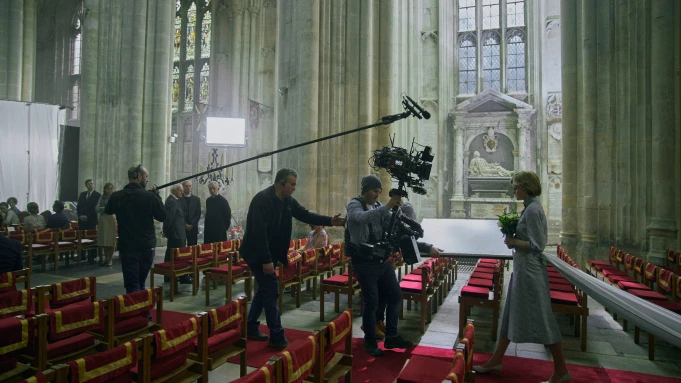How the Breakdown in U.K. TV Negotiations Could Disrupt Production Worldwide: ‘It’s Gonna Be Chaos’

On Sept. 1. the five-year agreement governing crew terms and conditions on high-end TV drama productions in the U.K. runs out. If a new agreement isn’t reached by the end of the month, “it’s gonna be chaos,” warns Spencer MaDonald, national secretary for the Broadcasting, Entertainment, Communications and Theatre Union (Bectu), which represents British crews.
For over a year, Bectu has been battling with the Producers Alliance for Cinema and Television (Pact), which represents U.K. producers, in the hopes of signing a new framework governing the hiring of crew.
If a solution isn’t found, however, in place of a collective agreement, each Bectu branch (representing different departments such as grips, sparks, sound, costume and so on) will institute their own individual set of terms. If a production doesn’t accept those terms, MacDonald warns, they may struggle to find any crew at all given how busy the landscape is. “People are jumping from job to job so they can afford to turn work down if the terms don’t match what they’re seeking,” he says.
Even those who aren’t signed up to Pact will be impacted, as the convention in the U.K. is that non-Pact members — including foreign studios and streamers — honor the terms agreed between Bectu and Pact.
Producers in the U.K. are concerned that a failure to reach an agreement will up-end the budgets they are currently preparing. “We may find ourselves in the position that the budget we’ve submitted, and the commission that we’ve been given, is completely unaffordable, and the show would collapse,” said one production source, who spoke on condition of anonymity.
Both sides tell Variety they are keen to reach an agreement. But so far, there is no sign a deal is on the horizon.
On Monday, Bectu’s members voted to reject Pact’s latest offer. Among the issues the union identified with the new terms were a lack of clarity over budget bands (Pact had proposed a distinction between shows costing less than £7 million ($8.3 million) an hour and those costing more) and a disagreement on whether overtime would be predicated on “shooting” or “working” time. But the principal issue, MacDonald says, is the proposal “didn’t really go far enough in terms of addressing some of the work-life balance [issues].”
Much like the IATSE bargaining process over its Basic Agreement last winter, in which the major sticking point was the industry’s long-hours culture, MacDonald says “the biggest stumbling block” in the negotiations is “unsocial hours.” “What they want is the time back,” he says of Bectu’s members. “They want the weekends, they want to go home at a reasonable time before their kids go to bed.”
